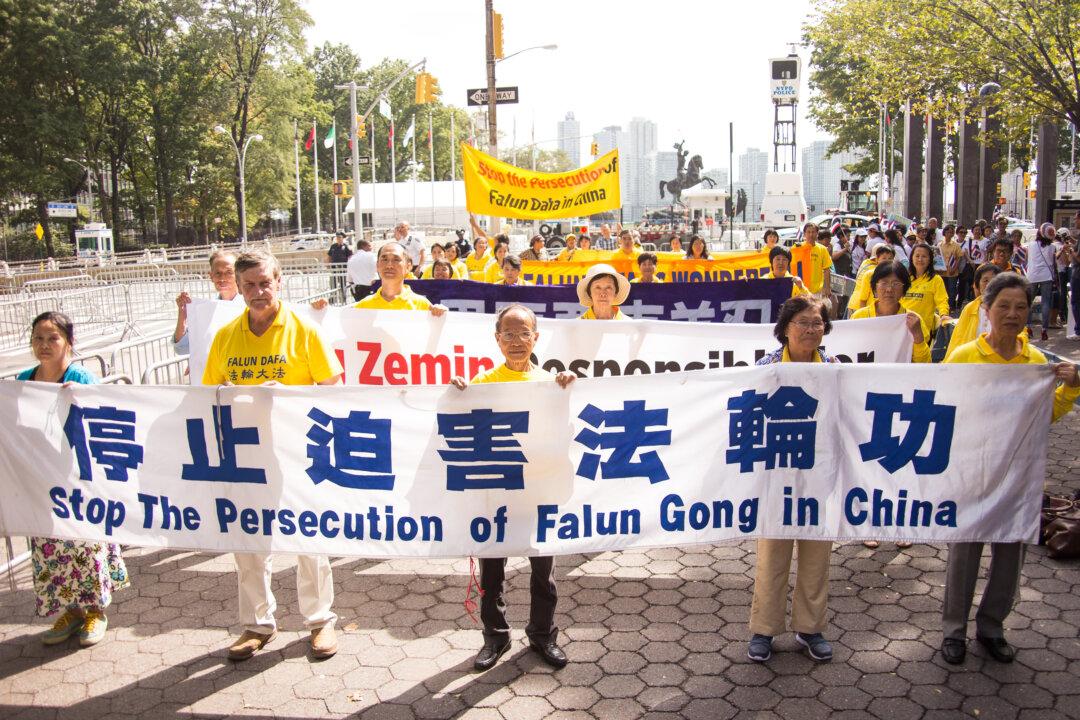NEW YORK—Standing in the light rain in front of tight security outside U.N. headquarters, Zhang Shufen, who used to be a company service representative in Beijing, became tearful as she recalled her two-year imprisonment in Beijing Women’s Prison.
It began in 2008, she said, after she was arrested by police due to her belief in Falun Gong; the persecution of this meditation practice led to her forced exile. In custody, she was denied toilet use for a week at a time, which caused her feces to become “as hard as stones” and resulted in bleeding. Because she was not given paper or running water, she was forced to wash herself with toilet water.
Along with over a dozen colleagues, she has come to greet Chinese Premier Li Keqiang, attending his first U.N. meeting, with her message.
“I want to inform everyone about the evil nature of the Chinese Communist Party,” Zhang said.




